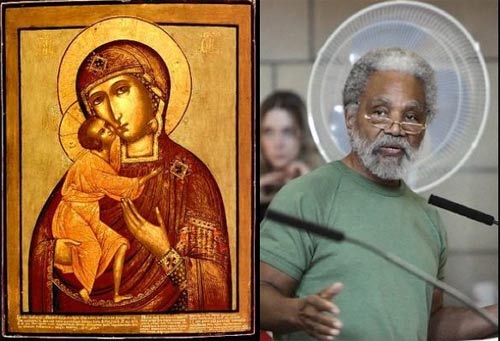What happens when you have a particular group in society who are not minded to follow the law of the State, but prefer to follow God’s law as they interpret it?
Recently this question has come up in relation to Sharia law, particularly after the Archbishop of Canterbury said that some aspects of sharia law would inevitably be adopted in Britain. But the question doesn’t just arise in relation to Islam. Many religions have a group within who prefers the laws of God to the laws of the State. For example, orthodox Jews in Australia may take some disputes between one another to the Beth Din, a religious court where rabbis hand out judgment. And some indigenous Australians may prefer that a dispute be dealt with under traditional law rather than “whitefella law”.
My personal opinion is that as long as the law of God does not transgress fundamental human rights, then parties can consent to that particular law binding their actions. It is rather like an agreement to arbitrate in a contract where any disputes are referred to a mutually agreed arbitrator. The problem occurs when a particular practice or punishment which is said to be required by the law of God or tradition is illegal under the laws of the State: eg, stoning, spearing through the leg, promise of child brides etc. My personal opinion is that such things should not be allowed. The issue is slightly more vexed with indigenous tradition than it is with other religious laws because indigenous people didn’t “choose” to move here and to be subject to our laws, they were imposed upon them from colonisers. Nonetheless, as I have explained in one of my very early posts, as a feminist, I just cannot countenance the assault and rape of a teenage “promised bride” by her tribal husband, for example. Cultural relativism be damned.
It is a difficult question however, because it is a balance between religious tolerance and universal human rights (which should apply to all, regardless of race or religion or anything else).
Consequently, I was really interested to read this article in Slate about the American legal system and the Amish and the Mormons. I hadn’t really thought deeply about the conflict that would arise between State law and the traditions and laws of these two groups.
Amish are Anabaptists of Swiss-German origin who live in separate communities. They dress in conservative dress, do not use much modern technology and do not educate their children beyond 8th grade because of the “worldly values” they might learn. Study is focussed on the Bible, and children are expected to work in the fields with their parents once they leave school. They do not believe in Social Security, and do not either make payments or accept payments from the government. The educational practices and expectation that children will work in the fields has brought them in to conflict with US education and child labor rules. In Wisconsin v. Yoder 406 U.S. 205 (1972) three Amish parents were fined by the Wisconsin authorities for taking their children from school before the age of 16, but the US Supreme Court ultimately upheld the right of the parents to do this. Amish refuse to participate in wars, and their conscientious objection has also gotten them into trouble. As the article in Slate observes, the Amish have been given a fair degree of latitude, in part because they are peaceful and because they have managed to broker compromises with the State.
Mormons are members of the Church of Jesus Christ of the Latter Day Saints. They believe in the Book of Mormon. The Church of the Latter Day Saints officially abandoned polygamy after pressure from law enforcement in 1890, but some other fundamentalist groups continue to practice polygamy. The practice of taking multiple wives and taking child brides has brought the Fundamentalist Mormon Church into conflict with the law. In the last few weeks, Texan authorities raided a Fundamentalist Mormon compound after a 16 year old girl called authorities to say that she had recently borne a child to her 50 year old husband. Other US States are concerned that this raid may ruin their efforts to make Fundamentalist Mormons trust them and cooperate with them. As the Slate article outlined, a large raid on a Short Creek Fundamentalist Mormon community in 1953 was ultimately counterproductive. The Slate article concludes that the Mormon groups are in a different situation to the Amish:
But the fundamentalist Mormons groups are in a state of evasion. The ban on bigamy functions as a zoning ordinance: Plural marriage is fine in isolated communities, but not in Salt Lake City, and certainly not on TV talk shows, as Tom Green found. So long as the fundamentalists remain in hiding, the extreme ugliness of conducting raids creates a form of tolerance. They are thus in a “don’t ask, don’t tell” state of legal limbo that could break open at any time. They are outside the law in a different way.
It will be interesting to see whether the Texan raid is counterproductive or forces the Fundamentalist Mormon church into submission.
These situations remind us that the conflict between God’s law and the law of the State has many facets, and there are different ways of resolving the issue. Have a read of the Slate article and see what you think.




